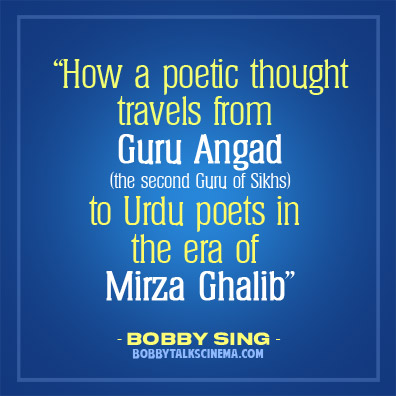
The exponents of literature all over the world are largely quoted in books and articles with their representative works, their most famous and appreciated expressions written as stories, plays, novels, or poetry. Following the same custom, Urdu poetry and its renowned poets are also often recalled and written about mentioning their most popular verses, which become synonyms with their names representing their entire work.
For instance, the name of Ghalib immediately makes you recite a few of his most famous couplets, and the communication about the poet gets established right away. As the contemporary of Ghalib and his rival in the Mughal court of Emperor Bahadur Shah Zafar, Sheikh Ibrahim ‘Zauq’, popularly known as Ustad Zauq is also remembered and represented by his most famous couplet defining the uncertain life and its circle of birth and death.
Following a praiseworthy style of expressing life-teaching thoughts without using any difficult Urdu words, Ustad Zauq wrote,
“Layee Hayaat Aaye Qazaa Le Chali Chaley,
Apni Khushi Na Aaye Na Apni Khushi Chaley”
Meaning - Life brought me into this world without any intimation and would also take me from here one day. Neither I came here with my consent nor can I leave this place at my own will, as pre-destined by the Supreme Power.
The couplet (from his ghazal) truly represents Ustad Zauq, his persona, and that is the reason it was also used along the sequence of his death in the famous TV Serial Mirza Ghalib written and directed by Gulzar with music by Jagjit Singh.
The enlightening words stayed with me ever since I first heard them in the serial in the late 80s. And I have been quoting the verse uncountable times in the last four decades duly mentioning the poet, as I could not find anything else describing the circle of life so beautifully without any complex thought process or difficult use of words.
To be honest, I only found Bhagat Kabir soulfully expressing a similar thought, simply comparing life with a bubble on the surface of the water. But the poetic music and rhyme in Ustad Zauq’s verse made it my all-time favourite.
However, in all these years, I wasn’t aware that an exactly similar expression, using the same terminology had already been penned by Guru Angad – the second Guru of Sikhs, around three centuries before the arrival of Urdu poetry and its masters in India.
Guru Angad has a very limited number of Shabads compiled in Guru Granth Sahib, which also includes Bhagat Kabir, Sheikh Farid, and other visionary saints/poets from different regions of the country along with the six Sikh Gurus. Actively writing around the mid of the 16th century, Guru Angad is also credited for inventing the new form of Gurmukhi script.
In one of his Shabads on page/ang 1239 of the divine scripture, Guru Angad expresses the thought as,
“Jeha Cheeri Likheya, Teha Hukam Kamahey,
Ghaley Aaveh Nanaka, Sadey Uthi Jahey”
Meaning - As it was written by the Supreme Power, the same is being obeyed with no will of ours. As it brought us, we came, O Nanak, as it will call us back, we will depart and go.
Making a repeated reading of the Shabad, I wondered how a thought travelled from the Sikh Guru to the Urdu poet post a gap of three long centuries. This also made me recall an ancient saying, that everything said here remains in existence as a sound wave, and a creative soul only needs to catch the right vibrations, reaching the same level of consciousness.
Though I had heard and read the Shabad earlier too, it never struck me in these comparative terms, until I found its verse mentioned in our elderly teacher-guide-friend Surender Mohan Pathak’s autobiography “Hum Nahin Changey, Bura Na Koye”. Reading it in the book, I straight away recalled Ustad Zauq and his ghazal, resulting in this write-up.
The experience also reminded me of Gulzar and his message for new writers. In one of his important interviews, the writer-poet-director said, “Das Kilo Padho aur 100 Gram Likho!” That certainly needs to be religiously followed by all young writers as a mantra, because no doubt the more we read, the more we get entiched with fresh content and ideas to be shared with our fellow readers.
Hope this write-up reaches many more friends interested in music, poetry, and life, overcoming all the social barriers.
HIS BLESSINGS
Bobby Sing
20/02/23 (bobbytalkscinema.com)

